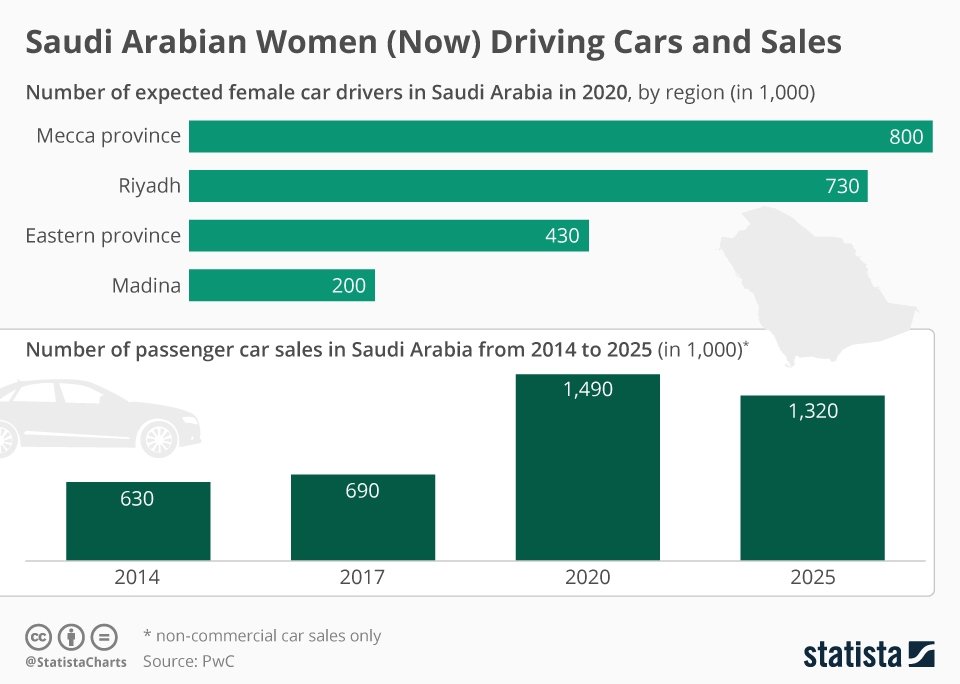Saudi Arabian women had long been denied the right to drive cars in a country that is considered one of the biggest producers of oil and its derivatives in the world. But things have recently changed, and Saudi women are now able to get their driving licenses and finally and legally sit behind the wheel. This decision by the newly appointed crown prince Mohammad Ibn Salman is expected to lead to significant changes in car sales and numbers of female drivers in the Kingdom of Saudi Arabia. These changes are of great interest not only to women, but also to the automobile market.
The chart shows the number of female car drivers in Saudi Arabia in 2020 in four different provinces. The numbers vary from one region to another for several reasons that are not to be mentioned here. The province of Mecca tops the list with regards to the number of female drivers. It is expected that their number will reach 800k female drivers in 2020. This number is four times larger than the number of female drivers in the Madina province where the expected number of female drivers stands at 200k. The two other provinces that the chart shows are the capital city of Riyadh and the Eastern province. In Riyadh, there are expectations that the number of female drivers will reach 730k, slightly less than in Mecca. However, the number of female drivers in the Eastern province amount to 430k drivers.
Furthermore, the crown prince’s decision to lift the female driving ban would also lead to huge increases in the sector of automobile sales, which would consequently revive this economic sector. The chart shows that the number of cars sold in the year 2014 was 630k, and the number increased only slightly in 2017. However, there has been a significantly huge increase in car sales in Saudi Arabia in 2020 with around 1,490m cars. In fact, the number has doubled compared to the year 2014 and 2017. Despite the huge increase in car sales in 2020, the number is expected to go down in 2025 to reach 1,320m.


